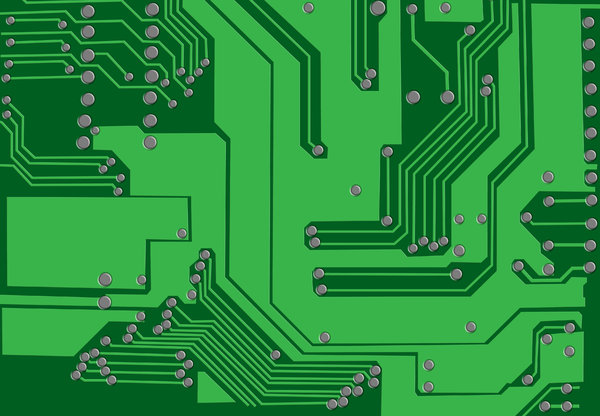How to Acknowledge False Recollections
페이지 정보
작성자 Blanca 작성일25-11-18 09:29 조회52회 댓글0건관련링크
본문
What Are False Reminiscences? What Causes False Recollections? False reminiscences are more widespread than you would possibly suppose. Learning how to recognize false recollections can make it easier to separate the facts from the fabrications. Most of us wish to believe that we now have a fairly good memory. Certain, we'd forget the place we left our automobile keys every now and then and of course, now we have all forgotten somebody's identify, an necessary cellphone number, or possibly even the date of our wedding anniversary. However relating to remembering the vital issues, like a cherished childhood event, our recollections are accurate and reliable, right? The fact is that memory is imperfect, and all people experience false recollections sometimes. These memories might form as a result of we misperceive issues or as a result of other info interferes with the Memory Wave Program's creation, storage, or Memory Wave retrieval. Even strong feelings can affect how we remember things. Being extra aware of this fallibility might enable you higher recognize the potential for false memories.
 What Are False Recollections? A false memory might be outlined as inaccurate recollections of previous occasions, mistaken details in a memory, or even full fabrications of events that didn't actually take place. While we might liken our memories to a digicam, preserving each moment in good detail precisely as it occurred, the unhappy truth is that our reminiscences are extra like a collage, pieced together typically crudely with the occasional embellishment and even outright fabrication. Analysis has helped show simply how fragile human memory will be. We're frighteningly vulnerable to errors, and delicate recommendations can trigger false reminiscences. Surprisingly, Memory Wave people with distinctive reminiscences are nonetheless inclined to creating things up with out even realizing it. In some circumstances, massive groups may even share the identical false memory, a phenomenon known as the Mandela impact. Most of the time, these false memories are centered on issues which can be pretty mundane or inconsequential. Simple, everyday events which have few real consequences. However sometimes these false recollections can have critical and even devastating penalties.
What Are False Recollections? A false memory might be outlined as inaccurate recollections of previous occasions, mistaken details in a memory, or even full fabrications of events that didn't actually take place. While we might liken our memories to a digicam, preserving each moment in good detail precisely as it occurred, the unhappy truth is that our reminiscences are extra like a collage, pieced together typically crudely with the occasional embellishment and even outright fabrication. Analysis has helped show simply how fragile human memory will be. We're frighteningly vulnerable to errors, and delicate recommendations can trigger false reminiscences. Surprisingly, Memory Wave people with distinctive reminiscences are nonetheless inclined to creating things up with out even realizing it. In some circumstances, massive groups may even share the identical false memory, a phenomenon known as the Mandela impact. Most of the time, these false memories are centered on issues which can be pretty mundane or inconsequential. Simple, everyday events which have few real consequences. However sometimes these false recollections can have critical and even devastating penalties.
A false memory relayed throughout criminal testimony would possibly result in an innocent particular person being convicted of against the law. Clearly, false memory has the potential to be a critical drawback, however why exactly do these incorrect memories form? What Causes False Reminiscences? To find out how to recognize these memories, step one is to establish some of the methods during which false recollections may very well be constructed. There may be a couple of completely different components involved within the formation of these false recollections. Human notion is not perfect. Sometimes we see issues that aren't there and miss apparent things that are right in entrance of us. In lots of instances, false reminiscences form as a result of the data shouldn't be encoded correctly in the first place. For example, an individual would possibly witness an accident however not have a transparent view of every little thing that occurred. Recounting the occasions that occurred might be tough or even not possible since they didn't actually witness all of the main points.
A person's thoughts may fill within the "gaps" by forming reminiscences that didn't really happen. In other circumstances, outdated reminiscences and experiences compete with newer info. Generally it is old reminiscences that interfere or alter our new recollections, and in different cases, new information can make it difficult to remember beforehand Memory Wave Program saved data. As we are piecing old information again together, there are generally holes or gaps in our memory. Our minds try to fill in the lacking areas, often using current knowledge as well as beliefs or expectations. For example, you can most likely distinctly remember the place you had been and what you have been doing in the course of the terrorist attacks of 9/11. While you in all probability feel like your memories of the event are fairly correct, there's a very sturdy chance that your recollections have been influenced by subsequent news protection and stories about the attacks. This newer info may compete with your present memories of the occasion or fill in lacking bits of data.
댓글목록
등록된 댓글이 없습니다.
